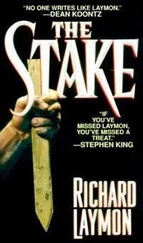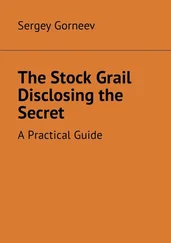Theodore Dreiser - The Stoic
Здесь есть возможность читать онлайн «Theodore Dreiser - The Stoic» весь текст электронной книги совершенно бесплатно (целиком полную версию без сокращений). В некоторых случаях можно слушать аудио, скачать через торрент в формате fb2 и присутствует краткое содержание. Жанр: Классическая проза, на английском языке. Описание произведения, (предисловие) а так же отзывы посетителей доступны на портале библиотеки ЛибКат.
- Название:The Stoic
- Автор:
- Жанр:
- Год:неизвестен
- ISBN:нет данных
- Рейтинг книги:5 / 5. Голосов: 1
-
Избранное:Добавить в избранное
- Отзывы:
-
Ваша оценка:
- 100
- 1
- 2
- 3
- 4
- 5
The Stoic: краткое содержание, описание и аннотация
Предлагаем к чтению аннотацию, описание, краткое содержание или предисловие (зависит от того, что написал сам автор книги «The Stoic»). Если вы не нашли необходимую информацию о книге — напишите в комментариях, мы постараемся отыскать её.
The Stoic — читать онлайн бесплатно полную книгу (весь текст) целиком
Ниже представлен текст книги, разбитый по страницам. Система сохранения места последней прочитанной страницы, позволяет с удобством читать онлайн бесплатно книгу «The Stoic», без необходимости каждый раз заново искать на чём Вы остановились. Поставьте закладку, и сможете в любой момент перейти на страницу, на которой закончили чтение.
Интервал:
Закладка:
As she once more neared the village of Nagpur she was suddenly overcome by the beauty of the sacred Hill of Ramtek, with its gleaming white temples, a landmark which dominated the entire surrounding country. And here she stopped to meditate on the exquisite beauty of the scene, held spellbound by the distant sounds of steady chanting of the Hindu mantrams which slowly rose and floated through the thin air. She knew that these were the voices of the holy men of Ramtek, who gathered at the end of the day to intone the sacred syllables of their faith. At first their voices sounded like a low murmur, soft but sweet, but as she drew nearer, the tempo of the chanting became like the steady beating of a great drum. And then it was as though her heart changed its rate of beating to conform with the pulse of this great God-seeking, spirit-loving land, and she knew that this was the realm in which she would find her soul.
Chapter 78
In the course of the next four years, Berenice practised many different phases of Yoga discipline, the first of which was the Yoga posture, which is used to keep the spine straight and make the body so firm, when one is sitting in meditation, that one does not feel it. For Dhyana—meditation—according to Yoga, is non-attachment. And when the spine is straight, the coiled-up Kundalini (triangular in form at the base of the spine) is aroused and rises through the Susumna, up the spine to the seven plexuses or centers of consciousness, finally ending with the Sahasrara, the highest or thousand-petal lotus of the brain. When this highest state of consciousness is reached, according to Yoga, one has achieved Samadhi, or super-consciousness. But whether or not one’s power of Kundalini reaches this last point, one’s perception is enlarged and elevated to the degree of its rise.
Berenice studied Pranayana—the control of the vital forces of the body; Pratyahara—or making the mind introspective; Dharana, or concentration; Dhyana—meditation; and often compared notes with some of the other students who were attending classes with her: one Englishman and one young and highly intelligent Hindu, as well as two Hindu women. In the course of time she studied Hatha, Raja, Karma, Jnanai, and Bhakti Yoga. She learned that Brahman, the Reality, is the total Godhead. It can never be defined or expressed. The Upanishads say that Brahman is Existence, Knowledge, and Bliss, but these are not attributes. Brahman cannot be said to exist. Brahman is Existence. Brahman is not wise or happy, but absolute Knowledge, absolute Joy.
“The Infinite cannot be divided into parts, and be contained in the Finite.
“This entire universe is pervaded by me, in that eternal form of mine which is not manifest to the senses. Although I am not within any creature, all creatures exist in me. I do not mean that they exist within me physically. That is my divine mystery. You must try to understand its nature. My Being sustains all creatures and brings them to birth, but has no physical contact with them.
“But if a man will worship me, and meditate upon me with an undistracted mind, devoting every moment to me, I shall supply all his needs, and protect his possessions from loss. Even those who worship other deities and sacrifice to them with faith in their hearts, are really worshiping me, though with a mistaken approach. For I am the only enjoyer and the only God of all sacrifices. Nevertheless such men must return to life on earth, because they do not recognize me in my true nature.
“Those who sacrifice to the various deities will go to those deities. The ancestor worshipers will go to their ancestors. Those who worship elemental powers and spirits will go to them. So, also, my devotees will come to me.”
As her Guru said one day: “The very air we breathe will tell us with each of its pulsations: ‘Thou art That.’ And the whole universe with its myriads of suns and moons, through everything that speaks, with one voice will cry: ‘Thou art That!’ ”
Berenice was reminded of Emily Brontë’s beautiful poem, which had long been one of her favorites:
No coward soul is mine
No trembler in the world’s storm-troubled sphere
I see Heaven’s glories shine,
And Faith shines equal, arming me from fear.
Oh, God within my breast,
Almighty, ever-present Deity!
Life that in me hast rest,
As I, undying Life, have power in Thee.
Vain are the thousand creeds
That move men’s hearts; unutterably vain,
Worthless as wither’d weeds
Or idlest froth amid the boundless main.
To waken doubt in me
Holding so fast by Thine infinity,
So surely anchor’d on
The steadfast rock of immortality.
With wide embracing love
Thy spirit animates eternal years,
Pervades and broods above,
Changes, sustains, dissolves, creates and rears.
Though earth and man are gone,
And suns and universes cease to be,
And Thou were left alone,
Every existence would exist in Thee.
There is not room for Death
Nor atom that His might could render void;
Thou—Thou art Being and Breath,
And what Thou art may never be destroyed.
At another time, the Guru asked:
“Where is there anyone that is not you? You are the soul of the Universe. If a man come to your door, go and meet yourself. For all are one. The idea of separateness is hallucination. You hate. You love. You fear. All hallucinations; ignorance and delusion.”
“Every thought and word that weakens is the only evil that exists.”
“If the suns come down, the moons crumble in dust, systems after systems are hurled into annihilation, what is that to you? Stand as a rock; you are indestructible.”
On Immortality: “The particle of energy which, a few months ago, was in the sun, may be in the human being now.
“There is nothing new. The same series of manifestations are presenting themselves alternately, like a wheel coming up and down. All motion in this universe is in the form of successively rising and falling. Systems after systems are coming out of the finer forms, evolving themselves, taking the grosser forms, again melting down, as it were, and going back again to the cause. So with all life. Each manifestation of life is coming up and then going back again. What goes down? The form. In one sense, even the body is immortal. In one sense, bodies and forms are eternal. How? Suppose we take a number of dice and throw them. Suppose the dice fall in this ratio: 5-6-3-4. We take the dice up and throw them again, and again. There must come a time when the same number will fall again, the same combinations will come.
“Now, the atoms comprising the universe are like dice being thrown out and combined, again and again. But there must come a time when exactly the same combination comes again, when you will be here, and this form will be here, this subject will be talked, and this pitcher, for instance, will be here. An infinite number of times this has been, and an infinite number of times will be repeated.
“We are never born and we never die. Each atom is a living thing, leading its own independent life. These atoms combine into groups for an end, and the groups manifest a group intelligence, so long as it remains a group, these groups again combining in turn and forming bodies of a more complex nature, which serve as vehicles for higher forms of consciousness. When death comes to the physical body, the cells separate and scatter and that which we call decay sets in. The force which held the cells together is withdrawn, and they become free to go their own way and to form new combinations. Death is but an aspect of life, and the destruction of one material form is but a prelude to the building up of another.”
Читать дальшеИнтервал:
Закладка:
Похожие книги на «The Stoic»
Представляем Вашему вниманию похожие книги на «The Stoic» списком для выбора. Мы отобрали схожую по названию и смыслу литературу в надежде предоставить читателям больше вариантов отыскать новые, интересные, ещё непрочитанные произведения.
Обсуждение, отзывы о книге «The Stoic» и просто собственные мнения читателей. Оставьте ваши комментарии, напишите, что Вы думаете о произведении, его смысле или главных героях. Укажите что конкретно понравилось, а что нет, и почему Вы так считаете.









